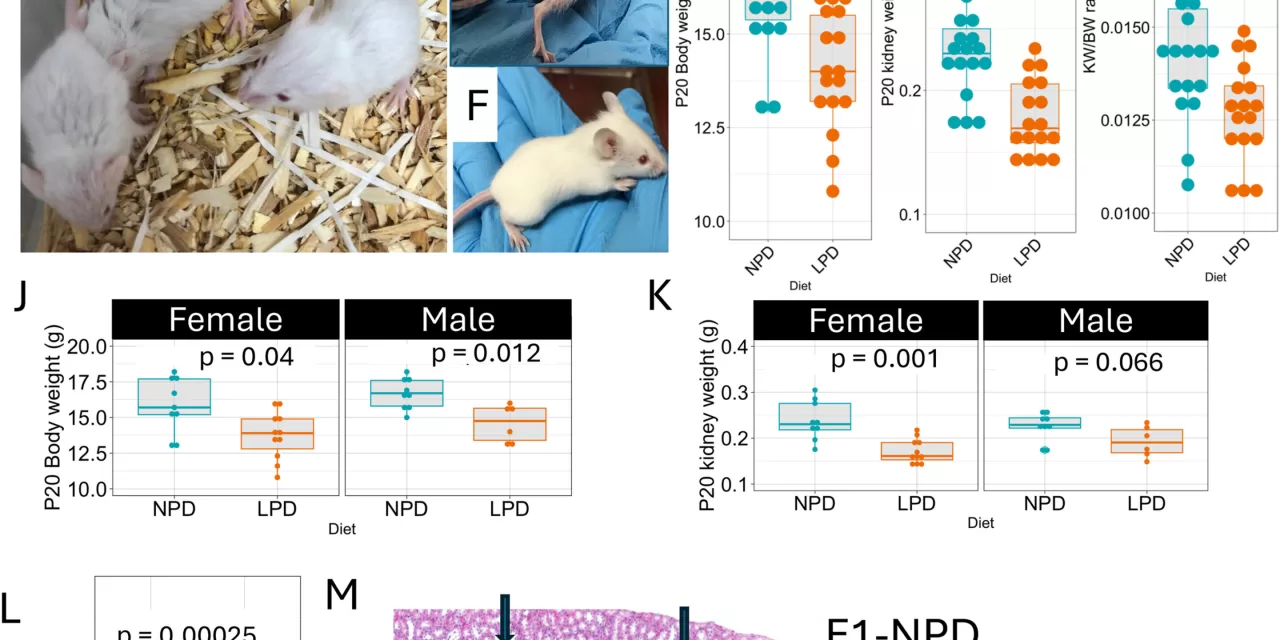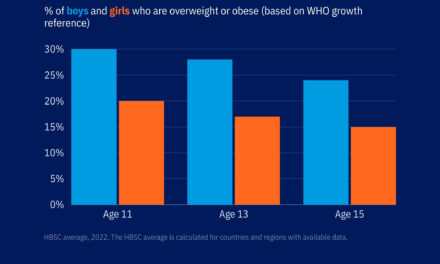New Orleans, LA – The adage “you are what you eat” may extend beyond an individual’s lifespan to impact the health of future generations. A groundbreaking study from Tulane University has revealed that dietary deficiencies can have multi-generational consequences, potentially affecting the health of descendants for years to come.
Published in the journal Heliyon, the research highlights how a low-protein diet in one generation can lead to adverse health outcomes in subsequent generations. Tulane researchers discovered that mice fed a low-protein diet produced offspring over four generations with lower birthweights and smaller kidneys—key risk factors for chronic kidney disease and hypertension.
Crucially, even when the diets of these offspring were corrected, the negative effects persisted across generations. Subsequent generations continued to be born with low nephron counts, the essential filtration units in kidneys that remove waste from the bloodstream.
“It’s like an avalanche,” explained lead author Giovane Tortelote, assistant professor of pediatric nephrology at Tulane University School of Medicine. “You would think that you can fix the diet in the first generation so the problem stops there, but even if they have a good diet, the next generations—grandchildren, great-grandchildren, great-great-grandchildren—may still be born with lower birth weight and low nephron count despite never facing starvation or a low-protein diet.”
The study found that both maternal and paternal nutrition played crucial roles in determining offspring health, underscoring the complex interplay of genetic and environmental factors.
This research is part of the field of epigenetics, which explores how environmental factors can impact gene expression without altering the DNA sequence. The Tulane study observed that nephron counts began to normalize by the third and fourth generations, though the exact mechanisms and timeline for this normalization remain unclear.
Tortelote emphasized the broader implications of these findings for understanding chronic kidney disease, which is the eighth leading cause of death in the United States. “If you’re born with fewer nephrons, you are more prone to hypertension, but the more hypertension you have, the more you damage the kidney, so it’s a horrible cycle, and a public health crisis that could affect people across 50 to 60 years if we apply this to humans’ lifespans,” he said. “There are two main questions now: Can we fix it and how do we fix it?”
This study raises important questions about the long-term impact of dietary deficiencies and the potential for epigenetic factors to influence health across multiple generations. Further research is needed to determine whether these findings apply to humans and how best to address these issues to improve public health outcomes.
For more information, see the original study: Fabiola Diniz et al., Morphometric analysis of the intergenerational effects of protein restriction on nephron endowment in mice, Heliyon (2024). DOI: 10.1016/j.heliyon.2024.e39552.
Journal information: Heliyon.












